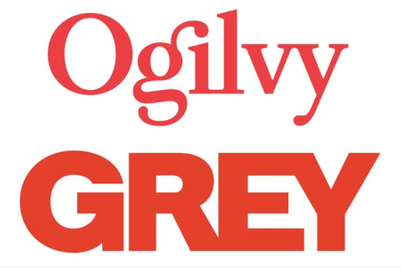
It seems independent agencies with David-like capabilities think they can slay the Goliath-like advertising firms, or at least be on a level playing field with them.
Andrew Au, managing director of the 10-year-old Fluid Group in Hong Kong, says a number of factors are creating a new growth phase for independents at the moment, with clients increasingly giving them business in Hong Kong and China particularly. His client roster spans from English-language media publications to hoteliers.
He claims his agency is “a miniature version of WPP”. He maintains that the quality of work delivered by independents is on par with the big agencies. “We are smaller, so we are hungrier to win clients. Just like the tagline of Avis (the number two car rental company behind Hertz), 'We try harder'," he said.
Independents outgunned 4A agencies in TVB's most popular TVC awards in July this year, with the Hong Kong-based Metta Communications taking home the 'powerhouse agency award'. It says it’s the quality of campaigns, not the quantity of big dollar ad placements, that drives success.
Independent agencies have changed incrementally over time. Fluid's Au says pan-Asian budgets are becoming less common now versus a few years ago, with marketers instead allocating separate funding to different markets. This gives smaller players a better chance at winning big, single-market accounts.
"(Independents) used to do a lot more production jobs, but our work has evolved into more localised creative and strategic consulting. Clients don’t want you to just print a poster but to be part of the planning and conceptualising process," he adds.
4A agency veteran Chris Kyme opened his own start-up boutique, Kymechow, last month. His client roster includes Mont Blanc, Sun Life Financial, and Tower Watsons.
He says the relationship with clients is the first thing to get right, and smaller agencies have a big advantage in this challenge. "Clients want to deal with senior people in the agency but MNCs cannot guarantee that. The attraction of small agencies is the attention they can give. MNCs lose the plot when (they) delegate downwards," Kyme says.
Au agrees. "Unlike the big agencies, we don’t send an A-team to win the client and then get the juniors or working level staff to service the account after that. Who you see at the pitch is what you get. Our senior management's involvement in our clients is much deeper, so we reduce communication errors."
Kyme adds that clients have recently begun to look at independent agencies in a new light. "It was harder to get clients to trust the small guys 20 years ago, but now clients are looking for alternatives to MNCs. Small agencies can manage overheads better and still keep the level of quality."
Au terms it as "offering value" to clients, but Andrew Lee, managing director of Metta Communications does not mince his words: "We are cheaper, faster, better, and more flexible than the big agencies with lots of regional levels to report to".
The bigger agencies, though, would tend to disagree.
John Goodman, president, OgilvyAction Asia Pacific and regional director of Ogilvy & Mather in Southeast Asia says the big networks offer breadth of people and experience. "If a client has a very small budget and wants to be the biggest client in the agency, then using an independent is the right way to go. But otherwise I would recommend an agency like ours, where you benefit from the cross-fertilisation of different cultures and people".
Donald Chan, CEO of JWT China, says international agencies are "traditionally strong in their networks, and through those networks global resources and best practices are shared". He urges clients to take advantage of JWT's core strengths in its size and network. "The power of the MNC network is more relevant now than ever as local markets are exposed to global influences with the proliferation of the internet. Our universal insights can help us trigger new thinking for new creative strategies," he says.
The multinational networks created by established behemoths are indeed difficult to replicate. But smaller agencies are working to circumvent this. Fluid, for example, partners with other "like-minded" agencies via thenetworkone, a membership-based global community of independent agencies in more than 60 countries.
Kyme says this is being played out in local and regional creative awards, which are increasingly going to "little creative initiatives with small budgets".
"The bigger the budget, the less risk clients are going to take. Creative and original projects are seen as risky since its ideas may not be tried and tested," he says.
On the flip side, Goodman says Ogilvy has clients who have larger budgets are "therefore often more able to experiment with new and interesting ideas. We also have multi-disciplinary businesses which expose people to the best of thinking in all areas."
So, as David faces Goliath, will the future of the industry be how JWT's Chan puts it, "being big is a strength"? Or will Fluid's Au's “small is beautiful” philosophy win?


.jpg&h=334&w=500&q=100&v=20250320&c=1)


.png&h=334&w=500&q=100&v=20250320&c=1)



.png&h=334&w=500&q=100&v=20250320&c=1)

.png&h=334&w=500&q=100&v=20250320&c=1)







.png&h=268&w=401&q=100&v=20250320&c=1)